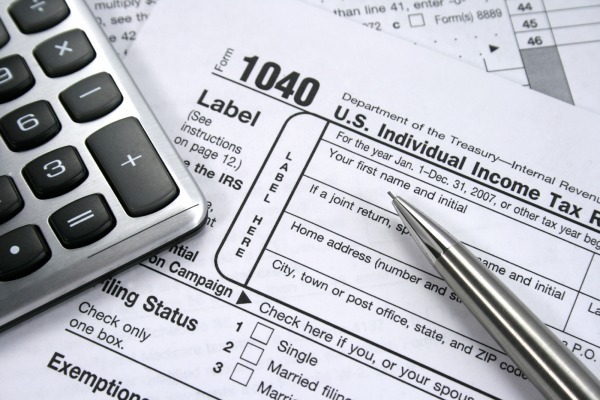
All year long, you shell out money to keep your car rolling. But as you file your federal tax return this year, your car-related expenses could actually save you some money.
Tax professionals and a spokesperson for the Internal Revenue Service (IRS) say there are at least five main areas car owners should consider when preparing their returns. People can only claim these deductions if they file the more complicated tax forms where they list itemized individual deductions. The deductions reduce taxable income, and the net effect is lower taxes. Depending on your tax situation, you could pay less when you file, or get a bigger refund later.
While some people fill out their tax return themselves, many go to professionals (such as an accountant) for help. Either way, it is up to the individual to pull automotive records together in preparation for that important meeting. This article shows where the biggest auto deductions occur, so you will know what to discuss with your accountant or other tax professional.
People who use their cars for business are typically the ones who claim automotive expenses, says Gil Charney, principal tax researcher with the Tax Institute at H&R Block. Record-keeping, such as tracking miles you drive for business, is too much effort for some people, Charney says. "That gets in the way of claiming everything they can. But the business side is where you can deduct a wealth of things."
"Automotive deductions and motor-vehicle-related credits may certainly help people reduce their tax bill," says Anabel Marquez, IRS media relations specialist for Southern California. "Even if they have their taxes prepared for them, our site will help them prepare as well."
If you've been less than thorough with your record-keeping, you can still estimate some of the expenses, such as the number of miles you have driven. However, estimates aren't considered strong documentation by the IRS in the event of an audit, says Charney.
The biggest deductions will be available to people who own their companies and use their cars for business, Charney says. However, employees of a company who use their cars for business and are not reimbursed by their employers can claim some deductions.
Here are five tax deductions that you can consider and discuss with your tax preparer. If you are doing your own taxes, check the links for further research.
1. General business use. If you use your car in your job or business and you use it only for that purpose, you can deduct its entire cost of operation, Marquez says. She adds that there might be some limitations that are described in IRS Publication 463. "However, if you use the car for both business and personal purposes, you may deduct only the cost of its business use," she says. Charney points out that the operating expenses could include gas, maintenance, interest on your car loan, repairs and insurance (which is typically not allowed as a deduction for personal-use cars).
2. Business miles driven. People who use their cars for business-related work can claim 50 cents per mile for their 2010. (The rate for 2011 is 51 cents. The mileage rate changes virtually every year.) This standard mileage rate method of deduction is a simplified method used by employees and self-employed people for business-related driving instead of itemized deductions for direct costs of operations. The government stipulates that this is actual mileage measured by the odometer and recorded at the time of travel. If you estimate the mileage, it might be disallowed as a deduction in the event of an audit, Charney says.
People who do not use their cars for business but still itemize might be able to deduct mileage for such things as driving they do for charity work or trips they make for medical reasons, such as driving to doctor appointments.
3. Sales taxes on vehicles purchased before January 1, 2010. A person may be able to deduct state and local sales or excise taxes paid after February 16, 2009, for the purchase of any new motor vehicles, Marquez says. In other words, if a person purchased a new car in late 2009 and didn't pay sales taxes until 2010, then those taxes may be deducted, she says. For more information, refer to Form 1040. Currently, that information is listed under "Line 40," in the bottom right corner on page 33.
4. Depreciation on a vehicle. A vehicle's value decreases each year, and people who use their cars for work can claim a percentage of this loss. The formula for this is complicated and is best worked out by a tax professional.
5. Leasing a business vehicle. If people lease their cars for business, the entire lease payment can be deducted from the taxable income, Charney says. In some cases they can combine this with individual deductions, such as operating costs. He says that business people will want to try applying the deductions in different ways to see which is best for the taxpayer's individual situation.
For more auto-related tax questions, an H&R Block spokesman suggested contacting the company's Community Forum, where taxpayers can ask virtually any question and a tax professional will answer.
And for those people who worry that too many deductions will prompt an audit, Charney offers this advice: "The reasons for triggering an audit are more private than the formula for Coca-Cola," he says. "If you have deductions, there is no reason not to claim them. If you have good records, you have nothing to fear for claiming them."